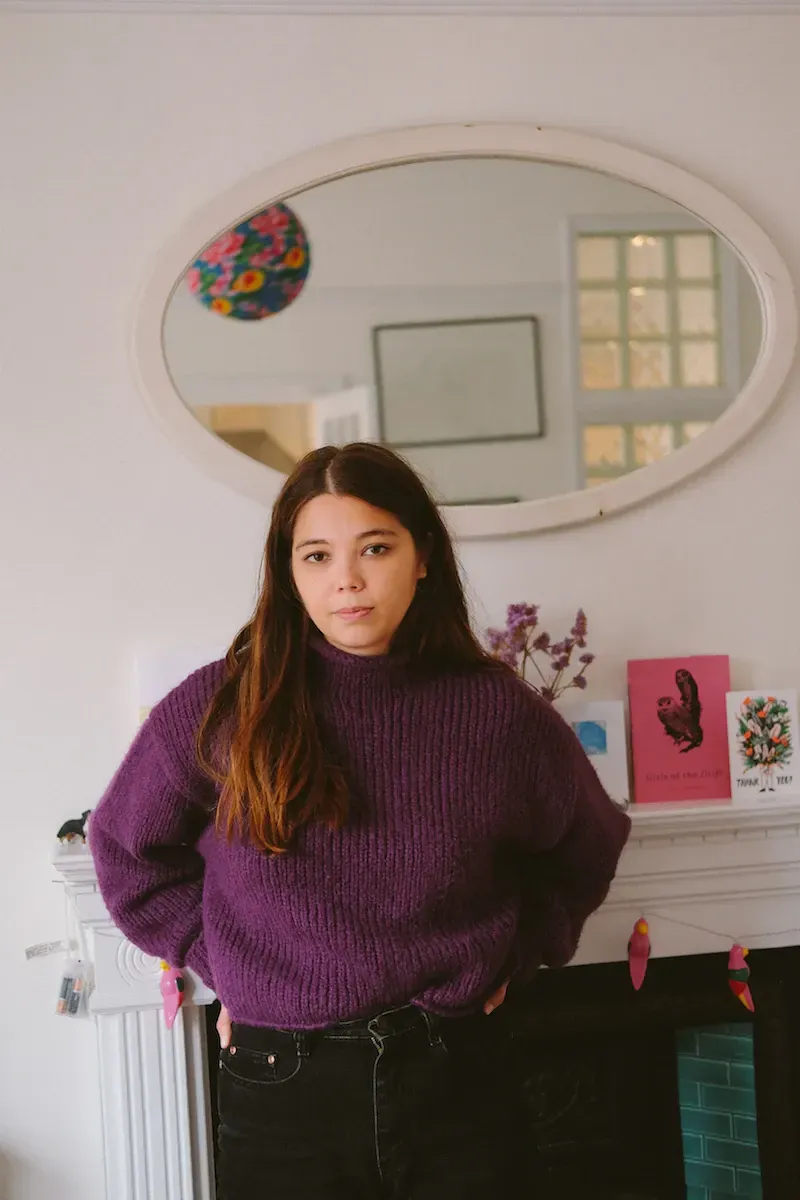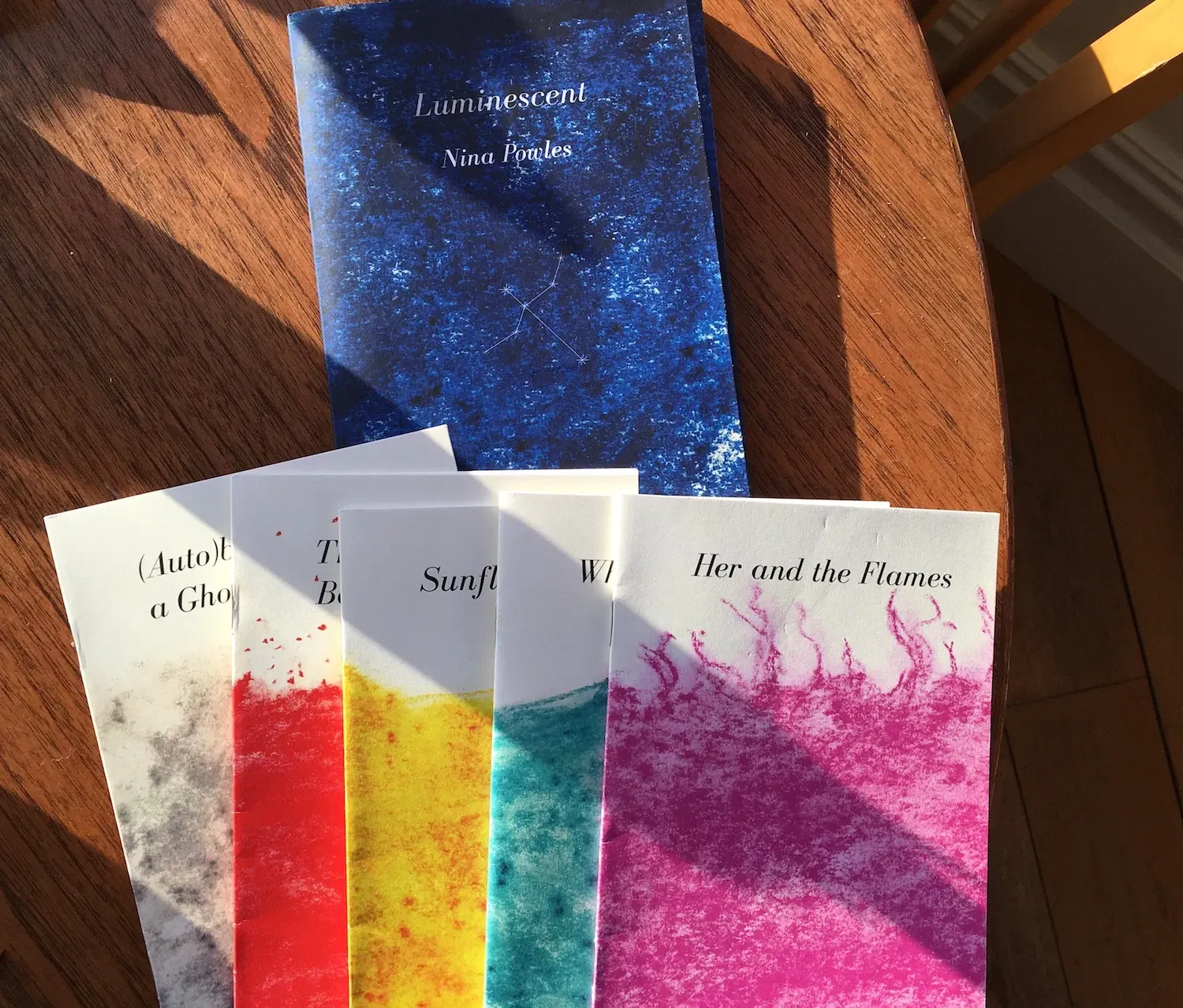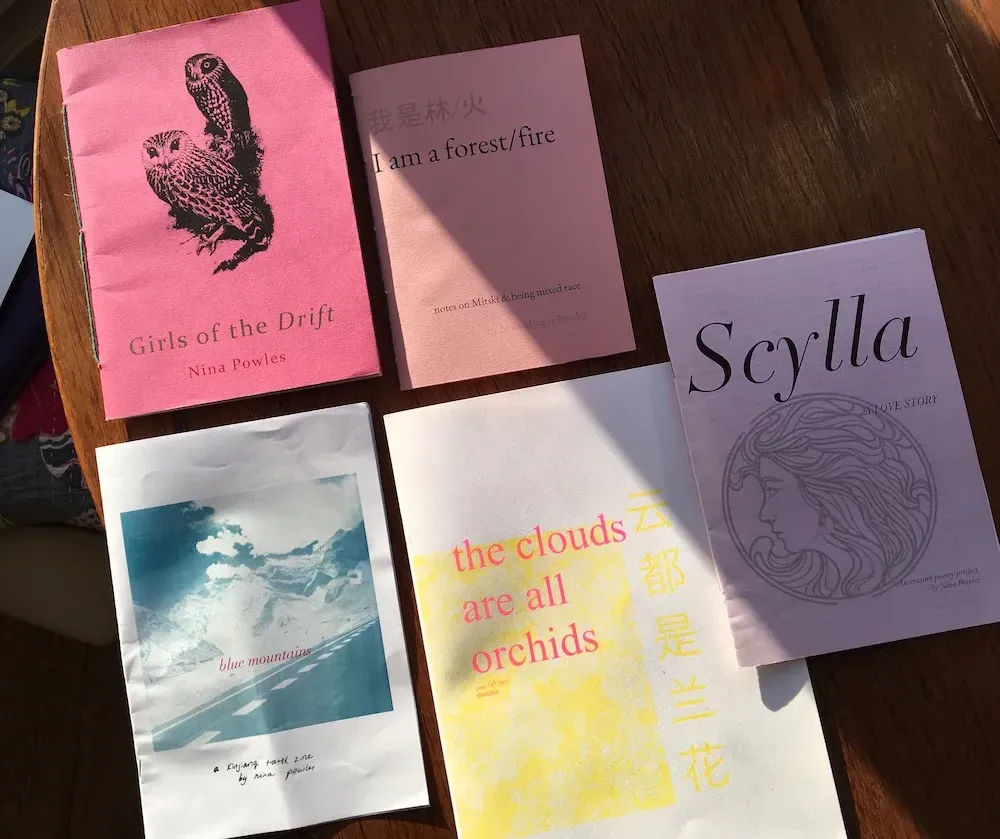Going Global: The Incredible Originality of Nina Powles
Written by

I am seated at the café of the bookstore Foyles in London, waiting for an award-winning poet to arrive.
Of course, Nina Powles would probably be embarrassed to be described as award-winning, but as of a couple of weeks ago, it is a truthful description. Powles, a New Zealand writer who has been living in London since January, was one of three inaugural winners of the Women Poets’ Prize.
Winning the award
The Rebecca Swift Foundation, created in memory of the much-loved editor, novelist and poet Rebecca Swift, started the prize. It aims to combine two of Swift’s key passions: poetry and women’s empowerment.
The judges praised Powles’ work of “incredible originality” that perfectly merges form and content.
As a winner, Powles will receive a £1000 cash prize, and be paired with a poetry mentor and a pastoral coach, which the Foundation says will facilitate “a holistic body of support that nurtures craft and personal wellbeing in equal measure.”
The prize also offers a programme of creative professional development, something Powles says she is particularly interested in.
“I would love to learn more about teaching writing workshops to students and school-aged kids, and I’d also love to know more about intersections between poetry and visual art and book making, print-making and stuff. There are a few poets who work in many different areas, and that’s really interesting to me.”
Powles moved to London to be with her partner, whom she met while studying in Shanghai. After returning to her hometown of Wellington last year, she took a full time role with the IRD, and then moved to London on New Year’s Day.


Arriving in the middle of winter, Powles says she didn’t warm to the city at first. It took her a few months to land her first job, which was teaching Chinese cooking to schoolchildren for a Chinese charity.
“It was a fun job to have done and the team were quite cool and I spoke a lot of Chinese in that time, which was really amazing, otherwise I would have lost it.”
Powles now works four days a week at the National Poetry Library as a poetry assistant.
Kiwi living in London
As is not unusual for a Kiwi living in London, Powles misses living near the ocean, but working in the Southbank Centre means she spends her lunch breaks sitting by the River Thames, something she says “made me like London a lot more”.
She and her partner live near Hampstead Heath, another spot that allows for a welcome reprieve from big city life.
“Having trees makes a really big difference to my wellbeing. Being near green space that is accessible and open space is how I deal with not wanting to be in London,” she says.
“In the summer, swimming in the heath as well, is amazing. You must go to the ladies pond. It was the first place in London that I actually really liked. It’s a secret hidden swimming pond only for women.”
As for what she wants to achieve in London before her visa runs out, Powles wants to publish a book. That goal looks set to be ticked off next month, with the release of a small book that will be published by Edinburgh’s If a Leaf Falls Press.
What it’s like when you first get to London?
“I applied for I don’t know how many jobs. London is a really competitive place and I’m not really employable because I’m a poet, so I’m really grasping at straws to find things that might work for me.
"on my unemployed days, I would just go to the free museums or the national galleries and that was really cool"
“But the culture, the art, the galleries… on my unemployed days when I had nothing else to do, I would just go to the free museums or the national galleries and that was really cool.
“I didn’t really know anyone here apart from my partner and some of his family and then a few scattered people I’m not close with but crossed paths with in New Zealand. So I didn’t really have a community of my own and I would say I still don’t, but that’s okay for me in other ways.”
How artists make a living in London, one of the most expensive cities in the world:
“A lot of writers I know are academics. At the poetry library one of my colleagues is quite an established novelist and she works part time. I don’t know the details. Another of my colleagues supplements it with freelancing, which is kind of what I do. I can sometimes get occasional commissions - that helps. But basically I’m lucky that I had some savings when I came, from working at IRD full time for that amount of time and also just having double income of my partner and I.”
How she connected with the local poetry community:
“Mainly the internet is what helps me to connect with the local poetry community here. Twitter. Yeah, and the poetry library, because so many poets use it. So on a regular basis there will be poets coming in and depending on… I dunno, if I’m feeling brave, I might say I really like their work, but other times no, it’s just a place where poets come.

“Every month there is a poetry event of some kind. Also I took part in the poetry book fair, so I had a little stall and met lots of people through that. Also doing poetry workshops and writing workshops has been an amazing way to meet other writers. They’re quite expensive, but every few months I will do a one-day workshop at The Poetry School, or just the two hour workshop or something and that has been a really great way of meeting other writers.”
Advice for others planning on making the move to London:
“It’s perfectly possible and okay to move somewhere you’ve never been before and have no plan and not know anyone and also it will be okay, but it will also be really hard and you’ll get really homesick, so I think for me I had to have things in place to be prepared for when homesickness hit, which isn’t all the time.
"it’s perfectly possible and okay to move somewhere you’ve never been before and have no plan"
“The first time I moved to live somewhere on my own, I had some pretty bad homesickness and I didn’t know how to deal with it, whereas now I know that certain things will help, like cooking will really help. Even just calling home briefly will really help.
“Your wellbeing comes first, because I found when I was feeling that way then I couldn’t really do any creative work, or produce anything so it was really important to have support networks in place, even if where I am now I haven’t got the group of friends around me and family like I do back home. Spending time with animals really helps.”

